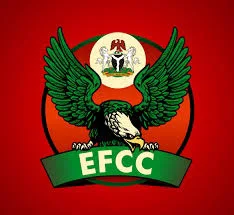The-EFCC-Under-Tinubu’s-Administration:-A-Critique-of-Government-Performance
The EFCC Under Tinubu’s Administration: A Critique of Government Performance
By Dave Ikiedei Asei
22/05/2024
The Economic and Financial Crimes Commission (EFCC) in Nigeria has long been heralded as the country's premier agency tasked with tackling corruption and financial crimes. However, recent actions and developments under President Bola Tinubu's administration have raised significant concerns about the integrity and efficacy of the EFCC. Yerima Shettima, a prominent social commentator and advocate for good governance, has been vocal about what he perceives as the agency's declining credibility and performance under the current administration. This article deals with these concerns, analyzing the factors contributing to the perceived mockery of the government and exploring potential pathways for reform.
Historical Context of the EFCC
Established in 2003, the EFCC was created to address the rampant corruption and financial crimes that plagued Nigeria. Its formation was a response to international pressure and the need to restore confidence in Nigeria’s financial system. Over the years, the EFCC has undertaken numerous high-profile investigations and prosecutions, earning a reputation as a formidable force in the fight against corruption. However, the agency’s effectiveness has often been hampered by political interference, insufficient resources, and challenges within the judicial system.
The EFCC Under Tinubu's Administration
When Bola Tinubu assumed the presidency in 2023, there was cautious optimism that his administration would bolster the EFCC’s mandate, given his campaign promises to tackle corruption. However, Yerima Shettima argues that the opposite has occurred. According to Shettima, the EFCC's recent activities have not only undermined its credibility but have also cast a shadow over the government's commitment to genuine anti-corruption efforts.
Key Issues and Criticisms
Political Interference: Under Tinubu’s administration, there have been allegations of increased political interference in the EFCC’s operations. Critics argue that the agency has been used as a tool to settle political scores rather than to genuinely combat corruption. This perceived politicization has eroded public trust and raised questions about the EFCC's independence.
Selective Prosecution: One of the most significant criticisms leveled against the EFCC is its perceived selective prosecution of cases. Observers note that the agency has been more aggressive in pursuing cases against opposition figures while being lenient towards allies of the administration. This selective approach undermines the rule of law and suggests that the EFCC is more interested in political vendettas than justice.
Inefficiency and Lack of Transparency: Despite its mandate, the EFCC has been criticized for inefficiency and a lack of transparency in its operations. Cases often languish in court for years without resolution, and there is little public accountability regarding the agency's decision-making processes. This inefficiency not only frustrates the public but also emboldens corrupt individuals who believe they can evade justice.
Diminished Morale and Internal Corruption: Reports of internal corruption within the EFCC itself have further tarnished its image. Allegations that some EFCC officials are involved in corrupt practices compromise the agency’s ability to act impartially and effectively. Additionally, morale within the organization has reportedly suffered due to leadership instability and perceived external pressures.
The Implications for Governance
The perceived decline in the EFCC's effectiveness has broader implications for governance in Nigeria. Corruption remains a significant impediment to the country's development, affecting everything from economic growth to public trust in institutions. If the primary anti-corruption agency is seen as compromised, it undermines efforts to promote good governance and accountability.
Pathways for Reform
Addressing the challenges facing the EFCC under Tinubu’s administration requires a multifaceted approach. Key recommendations include:
Ensuring Independence: Strengthening the EFCC’s independence is crucial. This could involve legislative changes to protect the agency from political interference and to ensure that appointments to its leadership are based on merit rather than political considerations.
Enhancing Transparency and Accountability: The EFCC must adopt more transparent practices to rebuild public trust. Regular public reporting on its activities, decisions, and outcomes can help achieve this. Additionally, establishing an independent oversight body to monitor the EFCC’s operations could enhance accountability.
Improving Efficiency: Streamlining case management processes and investing in training and resources for EFCC personnel can help address inefficiencies. Ensuring that cases are handled promptly and fairly is essential to restoring confidence in the agency’s ability to deliver justice.
Addressing Internal Corruption: Implementing robust internal controls and accountability mechanisms is vital to rooting out corruption within the EFCC. Whistleblower protections and regular audits can help identify and address corrupt practices among EFCC officials.
Fostering Public Engagement: Engaging with civil society organizations and the public can provide valuable oversight and support for the EFCC’s work. Public education campaigns about the agency’s role and the importance of anti-corruption efforts can also enhance community involvement and support.
Conclusion
The EFCC’s journey under Tinubu’s administration has been fraught with challenges and criticisms. Yerima Shettima’s observations highlight serious concerns that, if left unaddressed, could further erode the agency’s credibility and the government’s broader anti-corruption agenda. However, with concerted efforts to ensure independence, enhance transparency, improve efficiency, address internal corruption, and foster public engagement, there is potential for the EFCC to reclaim its position as a cornerstone of Nigeria’s fight against corruption. Ultimately, the success of these reforms will depend on political will and a genuine commitment to upholding the principles of justice and accountability.






Comments